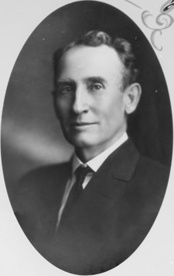William Harding Mayes
| William Harding Mayes | |
|---|---|
 |
|
| 23rd Lieutenant Governor of Texas | |
|
In office January 20, 1913 – August 14, 1914 |
|
| Governor | Oscar Branch Colquitt |
| Preceded by | Asbury Bascom Davidson |
| Succeeded by | William Pettus Hobby Sr. |
| Personal details | |
| Born | May 20, 1861 Mayfield,Graves County, Kentucky US |
| Died | 26 June 1939 (aged 78) Austin, Travis County, Texas US |
| Spouse(s) |
(1) Jessie Wise (m. 1886-her death in 1899, b.1869) |
| Children |
From first marriage:
Robert C. Mayes |
| Alma mater | Vanderbilt University |
| Profession | Journalist, politician, professor |
(1) Jessie Wise (m. 1886-her death in 1899, b.1869)
From first marriage:
Emma Etheridge Mayes (1887–1962)
Tyty Mayes (1888–1968)
William Harding Mayes Jr. (1895–1973)
Wendell Wise Mayes (1897–1971)
From second marriage:
Lewis Ousley Mayes (1906–~1920)
Isabelle Mayes Hale (1909–unknown)
Robert Chappell Mayes (1912–2009)
Robert C. Mayes
William Harding Mayes (May 20, 1861 – June 26, 1939) was Lieutenant Governor of the U.S. state of Texas (1913–1914), a newspaperman who published the Brownwood Bulletin and founder of the University of Texas journalism school.
Born in Mayfield, Kentucky, Mayes was educated at Norton's English and Classical School in Tennessee, Paducah District Methodist College in Kentucky and Vanderbilt University, class of 1881, where he was a member of Phi Delta Theta. He practiced law in Kentucky in 1881 as a partner in the law firm Park and Mayes and in Texas from 1882 to 1886, serving as county attorney of Brown County, Texas from 1882 to 1883. He received an honorary doctorate of laws from Daniel Baker College in 1914.
Mayes purchased weekly newspapers in Brownwood, Texas in the 1880s and began the daily Brownwood Bulletin newspaper in 1900, which he published until 1914. He and his brother, H.F. Mayes, founded one of the earliest newspaper chains, owning Texas papers in Brady, Stephenville, Santa Anna, May, Ballinger and Dalhart. The Brownwood Bulletin was the first newspaper in Texas to not be officially linked to the state Democratic party, instead opting to be independently Democratic (supportive of the party in general, but critical when warranted).
...
Wikipedia
